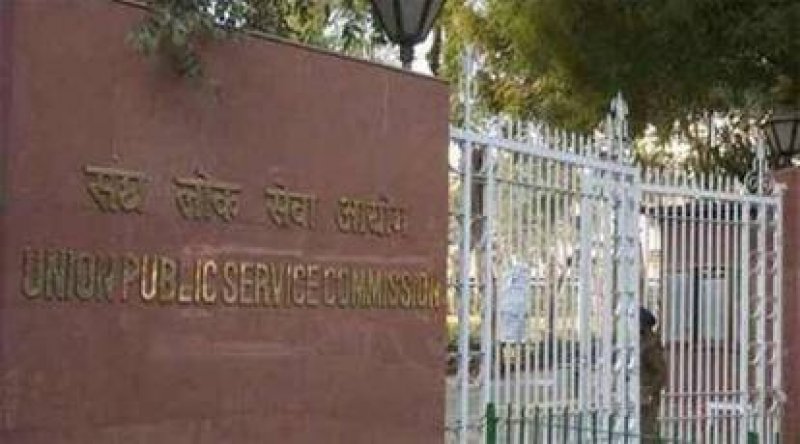TRENDING TAGS :
Celebrating What Success?
UPSC results trigger massive celebrations every year, but should cracking one exam define national success? This thought-provoking piece challenges our glorification of bureaucracy and calls for a shift in what we celebrate.
The UPSC results are out. As always, the same ritual was repeated: top rankers and even those ranked lower were celebrated with interviews, photographs, videos, garlands, and endless glorification. Those who came from rural backgrounds saw their villages light up with celebrations—as if Diwali had arrived early. The villagers were overjoyed.
IAS: The Ultimate Dream?
Becoming an IAS officer is regarded as the greatest achievement, the ultimate dream of life. Those who achieve it are considered supreme; their parents are hailed as ascetics who birthed such “great souls.”
Why is a Government Job So Revered?
Securing a government job, especially as an IAS officer, is seen as monumental. Why? Because the IAS “runs the country,” they are regarded as rulers, supreme authorities, almost like deities. They ride in big cars, live in lavish bungalows, command an army of servants, enjoy police escorts, and are immune to traffic fines. Their jobs are untouchable; they are the masters, while we are the subjects—hence, they are venerated as divine.
The Missing Questions
What Has Really Been Achieved?
Yet, beyond this celebration, we fail to pay attention to the other side of the story, to the reality. We are unable—or perhaps unwilling—to think differently.
Someone needs to pause and ask: what have these civil servants really achieved? Has anyone asked this year’s topper how she plans to apply her Biochemistry studies in her administrative role? Does she have any vision or plans for solving the countless hardships faced by the common people?
Why the Career Switch?
Today, it has become common for IITians, B.Tech graduates, IIM alumni, and MBBS doctors to join the IAS. Despite having prestigious degrees and immense career opportunities, why do they end up becoming bureaucrats? Is merely heading a government department considered “nation-building”? If so, does that mean everyone else outside of government service is not contributing to the nation?
Glorification vs Contribution
The answer is simple: People aspire to what they have seen, heard, and perceived. When IAS officers are portrayed as super-powered, super-rich, and superior, it is natural for aspirants to chase that dream. Although politicians are technically said to run the country, in truth, the bureaucracy runs it.
The Pedestal Problem
Why This Much Glorification?
Someone should also ask: Why should we glorify selected candidates at all? What does it mean for us? Are only those who get government jobs—or become IAS or IPS officers—worthy of celebration? Is securing a job and a handsome package the only sign of contributing to nation-building?
Accountability After Glorification
And later, when these same celebrated officers indulge in wrongdoings, earn hundreds or thousands of crores through corruption, will anyone dare question them?
Does the Exam Truly Assess Aptitude?
What is the selection criteria for the civil services? Simply cramming and clearing an exam? Is there any critical thinking involved? Any real planning for solving societal problems?
One examination pass, and suddenly a candidate is considered fit for handling livestock, panchayati raj, road construction, information and communication, urban development, revenue, investment, personnel—whatever department they are assigned.
Colonial Legacy of Bureaucracy
Where Did It All Begin?
The Indian Civil Services were created after the 1857 Revolt to help the British Empire maintain control over India. Originally known as the Imperial Civil Service, between 1858 and 1947 it was the British Crown’s most powerful tool. Only people from the upper class were inducted, and each ICS officer held sway over nearly 300,000 subjects, penetrating every aspect of their lives.
Still a Tool of Control?
We talk about erasing colonial memories—renaming cities, laws, systems—yet we leave the biggest British legacy untouched: the bureaucratic system. Why? Because this remains the most effective tool for controlling and ruling the masses.
Educational Mismatch
What Are the Actual Qualifications?
What qualifications are required to become an IAS officer? Just a graduate degree—the same as needed for a government clerk’s job. So why do we need engineers, doctors, and PhDs in the IAS?
Specialization, Where Art Thou?
If highly qualified professionals are allowed to sit for the exam, why not mandate that after selection they work only in fields matching their degrees?
-
Let biochemistry graduates serve in scientific roles.
-
Let engineers handle engineering work.
-
Let doctors be assigned to health departments.
-
Let District Magistrates have education specifically in law and finance.
Lateral Entry Isn’t a Fix-All
There was even an experiment called lateral entry, where private sector professionals were directly appointed as Joint Secretaries. But the same problems persist. Professionals who spent years selling TVs and refrigerators—how can they meaningfully contribute to defense, agriculture, or urban development?
Even in the private sector, specialization is respected—every doctor specializes in a particular organ or disease. But in governance, a civil servant is expected to be a jack of all trades—the cure for every problem.
Should Success Be Celebrated?
But What Kind of Success?
Of course, success must be celebrated. But what kind of success?
Is life’s ultimate success defined merely by securing a government job? What about those who did not succeed, or who chose not to pursue this path at all? Should they be mourned? Are they not worthy citizens and contributors to nation-building?
Broader Celebrations Needed
Who will celebrate their journeys?
Yes, let us celebrate—but celebrate true achievements:
-
Not just securing a job.
-
Not the glorification of a system that fosters exploitation.
-
Celebrate truth.
-
Celebrate innovation.
-
Celebrate scientific discoveries.
-
Celebrate the preservation of nature.
-
Celebrate humanity.
-
Celebrate personal growth.
Life is a continuous examination—let’s celebrate the courage to pass it every day.
(The writer is a journalist.) [email protected]


